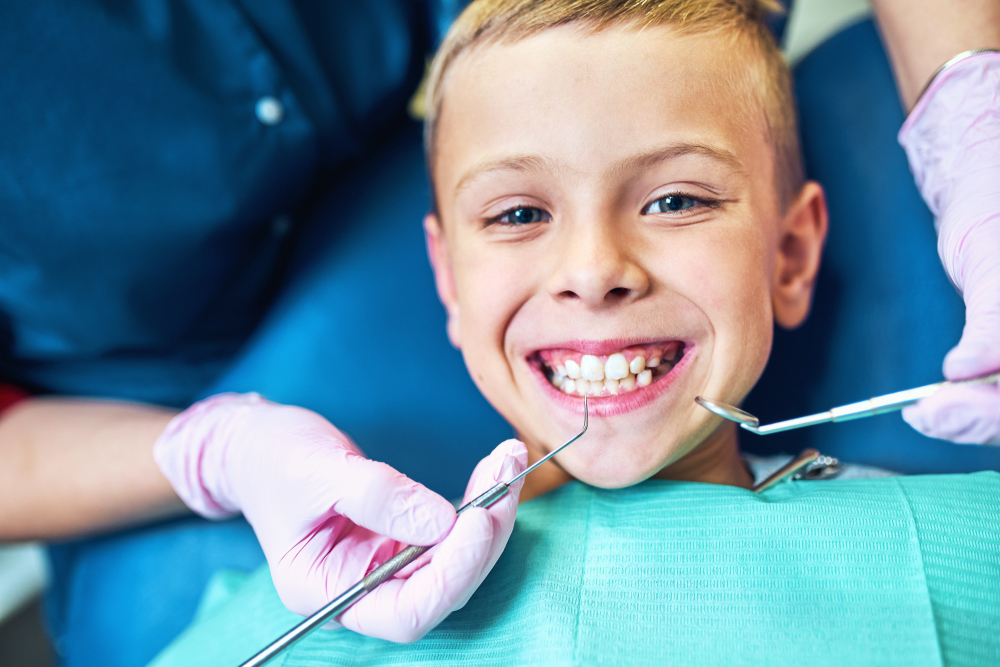
Proper dental care and great oral health is just as important for children as it is for adults, but just like us, kids can experience problems with their teeth that can’t be resolved with at home care. Instead, they need to see a dentist who can identify developing issues and recommend preventatives and treatments to preserve the health and appearance of their teeth and smile.
Here are some of the most common signs that your child needs an appointment with a pediatric dentist.
White, brown or black spots on their teeth
Many people are surprised to learn that white spots that appear on the teeth are actually a sign that the teeth are unhealthy. In fact, white spots are usually the first symptom that a cavity is developing in that area, and these will eventually turn grey, brown or black as the decay worsens. Fortunately, quick action by your pediatric dentist can ensure that your child’s smile remains healthy and intact – whether that is advice about dietary changes or treatments to remineralize the teeth, or restorative dentistry to repair any damage.
Irritated gums
Does your child complain about their gums feeling sore or irritated after they brush their teeth? If so, it could be a warning that they are starting to develop gum disease. Gum disease is just as much of a problem as cavities are and occurs when the bacteria found in plaque that forms on the teeth spreads onto the gum tissue, causing irritation and eventually infection. Eventually, it can have serious consequences if it isn’t treated, but early diagnosis and treatment can reverse it and the symptoms it causes.
Dental pain
Unsurprisingly, toothache is one of the main reasons why parents take their child to see a dentist. Toothache comes in many different forms. Some people will experience a constant dull ache that makes it hard to eat, sleep or concentrate. Others may suffer from moments of acute, sharp pain that takes their breath away. But often, toothache starts with sensitivity to certain foods and drinks. These are usually those which are hot, cold or sweet. If your child develops tooth sensitivity, they could be at risk of much more severe toothache.
A wobbly adult tooth
While it’s natural for children to lose their baby teeth starting around the age of 6 or 7, their adult teeth should be permanent. If you notice a wobbly tooth, particularly if your child has had an injury to their mouth, it’s a good idea to speak to your dentist as soon as you can.
Crooked, twisted, gapped or overlapping teeth
Most children are referred to an orthodontist at a fairly young age. This is because when adult teeth start to come in, problems with the position of the new teeth can occur. Adult teeth can become impacted (stuck) trying to come through, or they may shift other teeth out of the way, causing them to become misaligned. Misaligned teeth are more likely to be affected by decay, but orthodontic treatment such as braces or clear aligners can help ensure that they are in the best possible position. An orthodontist can also check the position of your child’s bite and use treatment to correct it if necessary – something which could prevent uneven wear on the teeth, and a range of other dental issues.
If you are concerned about your child’s teeth, don’t hesitate to make an appointment with our friendly pediatric dental team today. Visit Obeng Family Dental in Port Orange, FL. Call (386) 761-9440 today.
Sources
https://kidshealth.org/en/parents/healthy.html
https://growingsmilestx.com/10-most-common-dental-problems-in-children/







